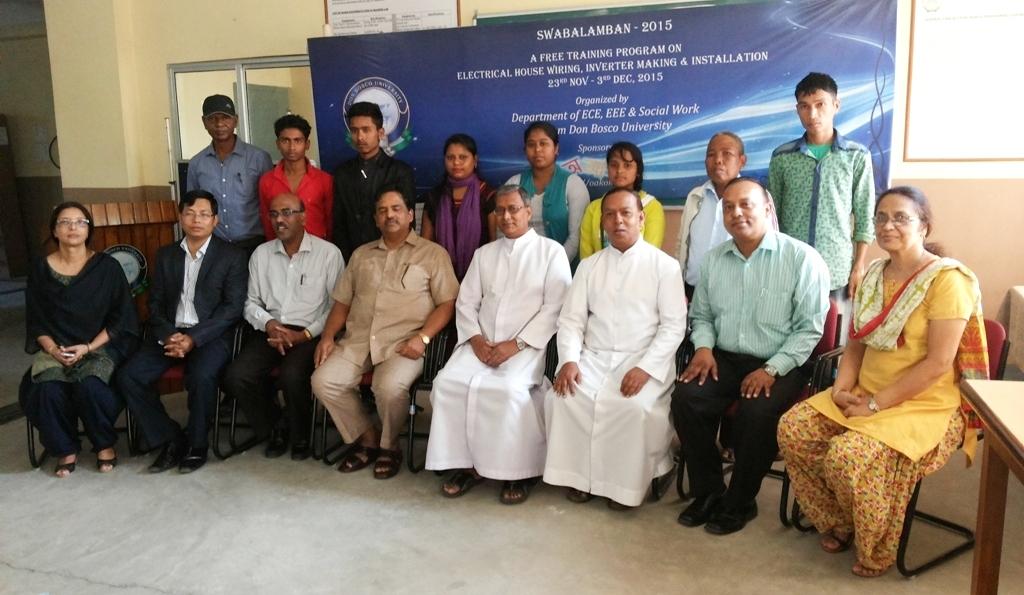University departments in northeast India have ventured into job-oriented training program for educated unemployed youth of its neighbourhood. Into the second year, the Swabalamban program this year has 40 per cent girl students registering for skills training once considered boys only domain.
During the ten day course students learn electrical house wiring, as well as build and install an inverter.
“Last year when we started the program we had over 100 applicants for ten seats, all boys. But this year we have four girls enlisting in the program,” says convener of the project Swabalamban (Self-reliance) and Head, Electronics and Communication Engineering (ECE) department Dr Sunandan Baruah.
Swabalamban 2015 which started off on 23rd November at Assam Don Bosco University, Azara campus is an inter departmental program to train educated unemployed youth in the neighbourhood. It aims at skilling youth in just ten days in a trade so that they begin earning their livelihood.
While the Social Work department of the university mobilized students by disseminating information to the villagers, selecting the trainees, and following up on the post training activities, the ECE department trains students on assembling simple inverters, as well as their installation and maintenance, the EEE department trains students on electrical house wiring.
The faculty, staff and students are involved at all levels of mobilization, training and placement of unemployed youths of the area.
Theory and practical sessions are held in the Machine Lab of Electrical and Electronics Engineering department.
During the first four days, students learn house wiring followed by another four days of inverter making, to be concluded with two days learning inverter installation.
“This time too, we had an overwhelming response from the youth,” says MSW Department Assistant professor Mr Victor Nazary.
“The project Swabalamban,” Mr Nazary says, “is answering to the urgent need of youths in the Azara Gaon Panchayat where they are facing crises in securing suitable livelihood options.”
Traditionally the community is dependent on fishing in the neighbouring Deepor Beel (fresh water lake bird sanctuary) for subsistence. The communities’ youths today are unable to sustain livelihood on fishing due to lower returns and changing ecological conditions.
The free training program conducted in collaboration with Azara Gaon Panchayat in one of university’s 39 labs at Azara campus from 23rd November to 3rd December is sponsored by a US based Non Resident Indian NGO called Oakokho.com.
OAKOKHO is an initiative started in 2013 by few Assamese folks from USA to make Assamese language, art and culture available and popular over the internet. The group also encourages and inspires talents from Assam and North East region in different fields of creative works ranging from literature to photography, web development to science and technology.
Speaking at the inaugural, Director, ADBU School of Technology Prof Manoranjan Kalita, highlighted the meaning of the word “SWABALAMBAN” and its relevance to the program.
While giving an overview of the training program Prof. Kalita mentioned the importance of self employment toward a self reliant livelihood. He also briefed trainees on how ADBU family is eager to help youth in the neighboring villages of Azara for the overall development of the area.
“I am immensely pleased to have such an event in the university,“ said ADBU Pro Vice-Chancellor Fr Joseph Nellanatt encouraging the participants “to take the maximum advantage of the opportunity.”
He further explained “the training is not actually free as the participants will have to pay by being present on time and attending all the sessions diligently.”
He assured the youth saying, “ADBU will be organizing many such training programs in the future.




Add new comment